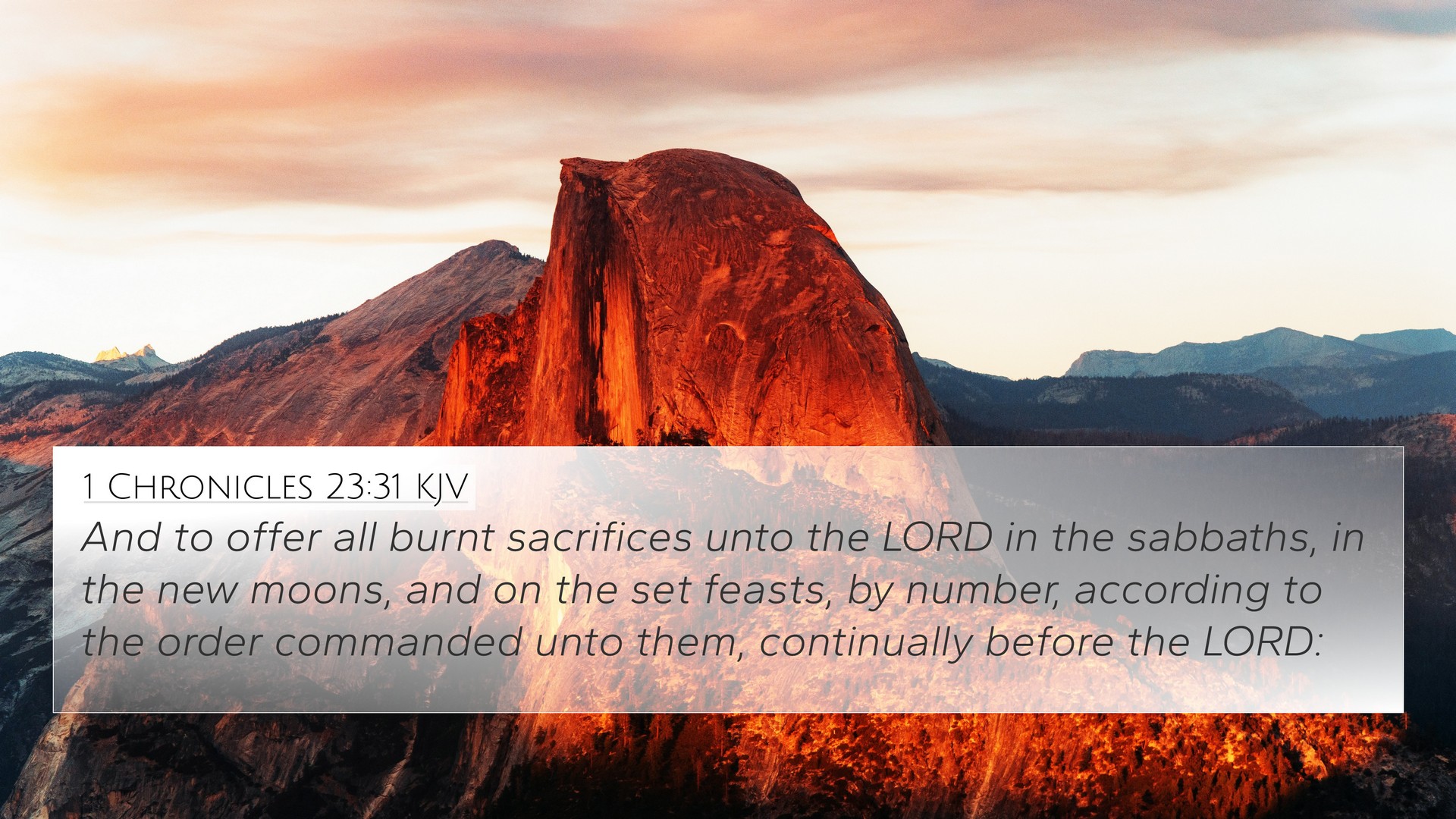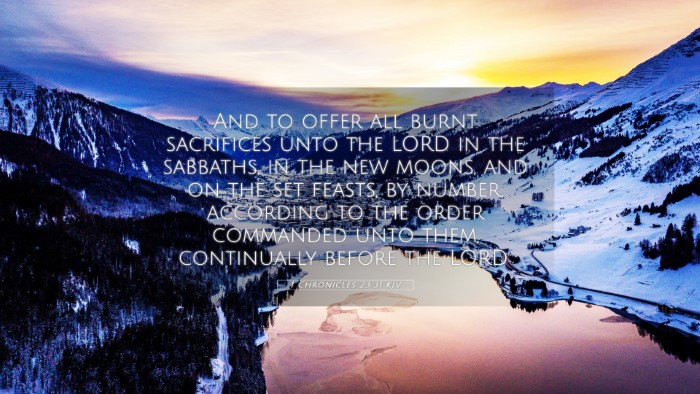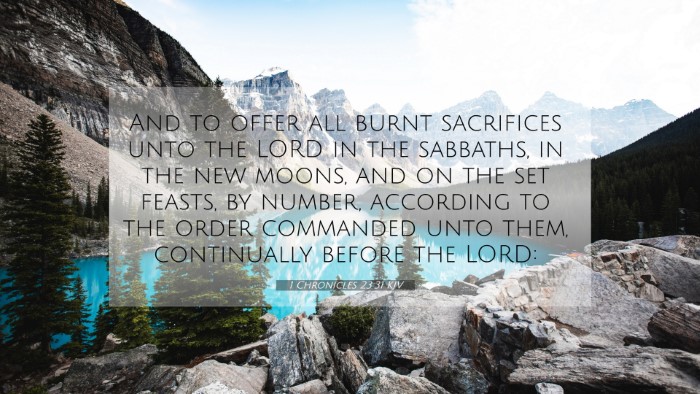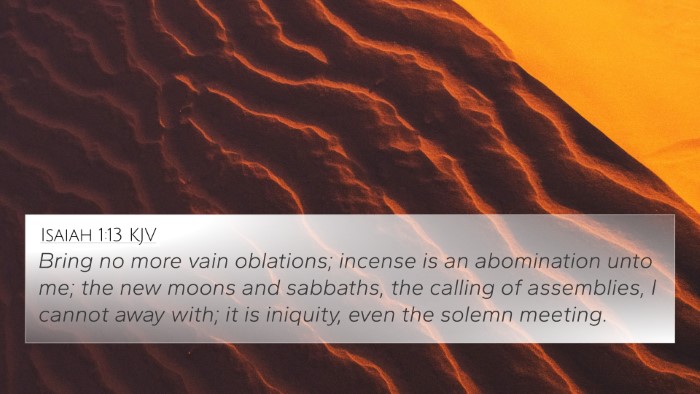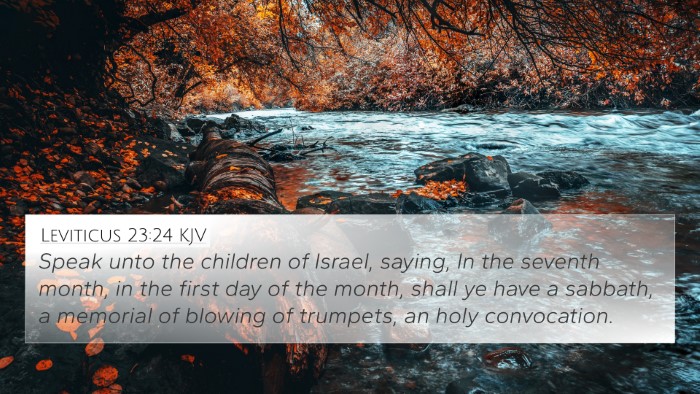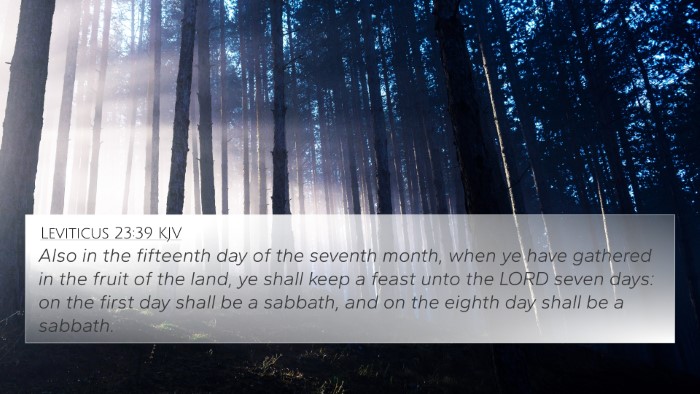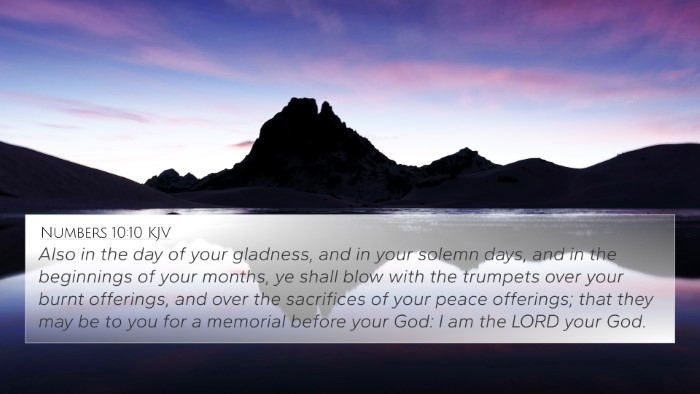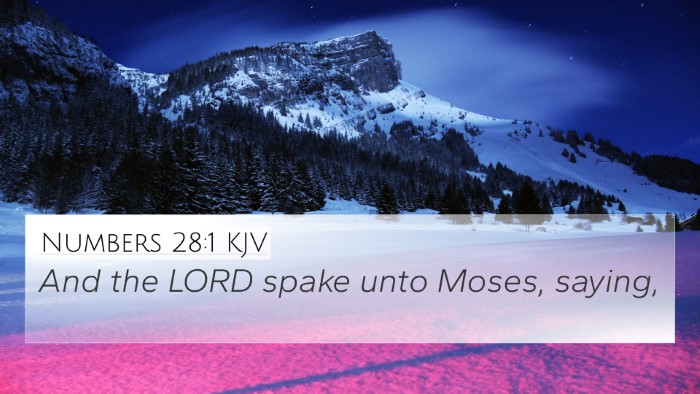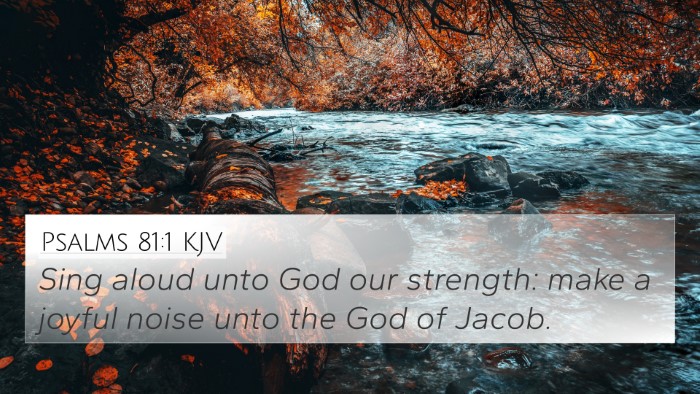Understanding 1 Chronicles 23:31
1 Chronicles 23:31 states, "And to offer all burnt offerings unto the Lord, in the sabbaths, in the new moons, and on the set feasts, by number, according to the order commanded unto them, continually before the Lord."
Commentary Summary
This verse highlights the importance of sacrificial offerings in the context of Israel's religious practices, specifically during significant times such as the Sabbath, new moons, and set feasts. The Levites were charged with the duty of offering sacrifices in accordance with the divine order established by God.
Significance of Offerings
Matthew Henry explains that offerings were a vital part of worship and service to God. The act of offering signifies the people's dedication and acknowledgment of God's holiness and lordship over their lives. Albert Barnes emphasizes that the burnt offerings represent total dedication to God, reflecting a commitment that believers should adopt in their heart's posture toward divine worship.
The Role of the Levites
Adam Clarke remarks on the specific mention of the Levites, noting that they had a unique role in maintaining the ritual practices, which set them apart for service in the sanctuary. Their responsibilities underscored a system that God ordained to ensure worship was conducted reverently and orderly.
Cross-References and Related Verses
1 Chronicles 23:31 is rich with inter-Biblical connections. Here are several significant Scripture cross-references:
- Exodus 30:10: Discusses the atonement offerings made by the high priest to purify the altar.
- Leviticus 23:3: Describes the Sabbath as a day of rest and sacred assembly, emphasizing the importance of holy convocation.
- Psalm 51:17: Reflects that a broken spirit and contrite heart are what God desires more than sacrifices.
- Hebrews 10:1-4: Indicates that the sacrifices of the Old Covenant can never take away sins, pointing towards the ultimate sacrifice of Christ.
- Romans 12:1: Calls believers to present their bodies as living sacrifices, holy and pleasing to God, which echoes the devotion urged in 1 Chronicles 23:31.
- Numbers 28:1-2: Details the daily offerings and their importance in the regular worship of the Israelites.
- Matthew 5:23-24: Encourages reconciliation before offering, which aligns with the heartfelt nature of offerings.
Thematic Connections
The themes of obedience, dedication, and the importance of ritual worship run throughout the Bible, reflecting how believers are to approach God:
- Obedience to Commandments: The consistent act of offering correlates with God's commandments across both the Old and New Testaments.
- Dedicating Time for Worship: The mention of specific times (Sabbaths, new moons) underscores God's desire for structured, intentional worship.
- Community Worship: The reference to communal offerings highlights the collective responsibility of Israel in their worship practices.
Understanding Through Cross-Referencing
Using tools for Bible cross-referencing enriches the understanding of any given verse. Resources such as a Bible concordance or a cross-reference guide can be tremendously beneficial for deeper studies.
For example, in examining how the themes of sacrifice appear in both 1 Chronicles 23:31 and Romans 12:1, one can draw correlations between Old Testament rituals and New Testament teachings about living sacrifices. This comparative Bible verse analysis reveals a continuity in the overarching biblical narrative concerning the heart attitude required in worship.
Conclusion
In summary, 1 Chronicles 23:31 serves as a reminder of the essential nature of worship, both in the Old Testament context and continuing into New Testament principles. The sacrifices offered during appointed times reflect a deep-seated understanding that worship is both a personal and communal endeavor, requiring active participation and dedication from God’s people.
By utilizing comprehensive Bible cross-reference materials, believers can better understand the links between different scriptures, enhancing their spiritual growth and engagement with the Word of God.
